AI in healthcare is enabling the current system to advance patient care to the next level.
It’s 3:47 AM. A doctor in Boston rubs her eyes, staring at a wall of patient data. Her shift’s not over for another hour, but exhaustion has long set in. Hundreds of data points, scattered across systems—vital signs, prescriptions, past complications—yet none of it tells her what she truly needs: what’s likely to happen next.
Meanwhile, halfway across the globe, a small clinic in Dallas gets an alert. An AI-enabled healthcare app has just flagged an unusual heart rhythm pattern in a patient who otherwise appeared stable. The clinician, startled by the prompt, acts quickly. Hours later, that data proves critical. A life was saved—not by chance, but by insight.
This isn’t science fiction anymore. It’s the new clinical reality, quietly reshaping how we think about patient care.
From intelligent triage systems and predictive diagnostics to personalized treatment suggestions and continuous monitoring, AI in healthcare is an emerging trend in the industry. Today, patient-centered care is becoming a core need of any healthcare service. Using AI in healthcare apps can help you provide high-value and patient-centered care more efficiently and effectively.
Whether you are a clinic, hospital, private doctor, medical institution, or a healthcare startup, if you envision scaling up your healthcare standards that meet the future needs of the healthcare sector, then it is time to embrace AI in healthcare apps.
In this blog, we’re going beyond the hype. You’ll see exactly how AI in healthcare apps is becoming a powerful ally for medical teams, improving outcomes. So, if you are looking to advance your patient-care service to the next level? If yes, then you should start thinking of adopting AI-powered healthcare apps now.
Table of Contents
What is Meant by AI in Patient Care?
AI in patient care is the integration of intelligent algorithms and data-driven systems into the clinical workflow to enhance how care is delivered, monitored, and optimized, without removing the human touch that defines healthcare.
Unlike traditional software that follows predefined rules, artificial intelligence learns from patterns, improves over time, and adapts its outputs based on real-world feedback. In patient care, this means AI systems can do more than just process data—they can interpret it, predict outcomes, and recommend actions that help clinicians make better decisions faster.
Current Challenges in Healthcare For Delivering Better Patient Care
Patient care primarily focuses on the specific and individual needs and preferences of every patient. Its goal is to provide more personal and tailored healthcare services that align with every patient’s values, needs, and expectations.
However, the current healthcare sector lacks patient-centered care. At present, doctors and healthcare providers are mostly involved in administrative tasks rather than prioritizing patients at the core.
The traditional healthcare or medical system also keeps service providers in the mainstream. Patient’s needs are often overlooked. As a result, healthcare providers, clinics, and medical institutions often fail to offer satisfactory patient care.
According to the latest research from the National Library of Medicine of the USA, the quality of patient-centered care is becoming a great challenge for the global healthcare industry. This study reveals the growing importance of incorporating patient-centered care at the core of the healthcare delivery system. Despite the rapid digital transformation in healthcare, the patient experience remains riddled with fundamental inefficiencies. Here’s a closer look at the real-world hurdles that healthcare providers and patients still grapple with:
1. Data Abundance, Insight Scarcity
Healthcare systems today generate a staggering volume of data—EMRs, test results, patient histories, wearable device inputs, and more. However, this sheer abundance doesn’t automatically translate into actionable insights. Clinicians often face the paradox of having too much data and too little clarity. It’s not uncommon for critical warning signs to get buried under irrelevant entries, delaying decision-making and sometimes compromising care outcomes.
2. Delayed Diagnoses and Reactive Care Models
Even in well-equipped hospitals, diagnosis is frequently a reactive process. Conditions like diabetes, heart disease, or even cancer are often caught in advanced stages, when options are fewer, and risks are higher. The traditional model relies heavily on patients initiating care, rather than systems intelligently anticipating deterioration. This delay is not just costly, it’s avoidable.
3. Inconsistent Follow-Ups and Patient Monitoring
Once a patient leaves the clinic or hospital, the continuity of care often dissolves. Missed appointments, forgotten medication schedules, and undetected symptoms between visits remain common issues. For chronic care management in particular, the absence of real-time monitoring limits the clinician’s ability to intervene early. This is where AI-powered healthcare apps are starting to create a significant impact, offering real-time alerts and feedback loops that keep patients engaged and connected.
4. Workforce Shortages and Time Pressures
Physicians, nurses, and care coordinators are under increasing pressure to do more with less time. Burnout is at an all-time high. In such environments, it becomes incredibly difficult to deliver thoughtful, patient-centric care. Administrative tasks, documentation, and fragmented digital tools consume time that could otherwise be spent on clinical decision-making and meaningful patient interaction.
5. Limited Time for Patients
Today’s doctors are often overworked and see a high volume of patients each day. This, as a result, leads to rushed appointments where there’s insufficient time to fully understand a patient’s needs, preferences, and values. This impersonal approach makes it difficult to tailor treatment plans and ensure patients feel heard. Due to this, the market has witnessed significant growth in doctor on-demand services.
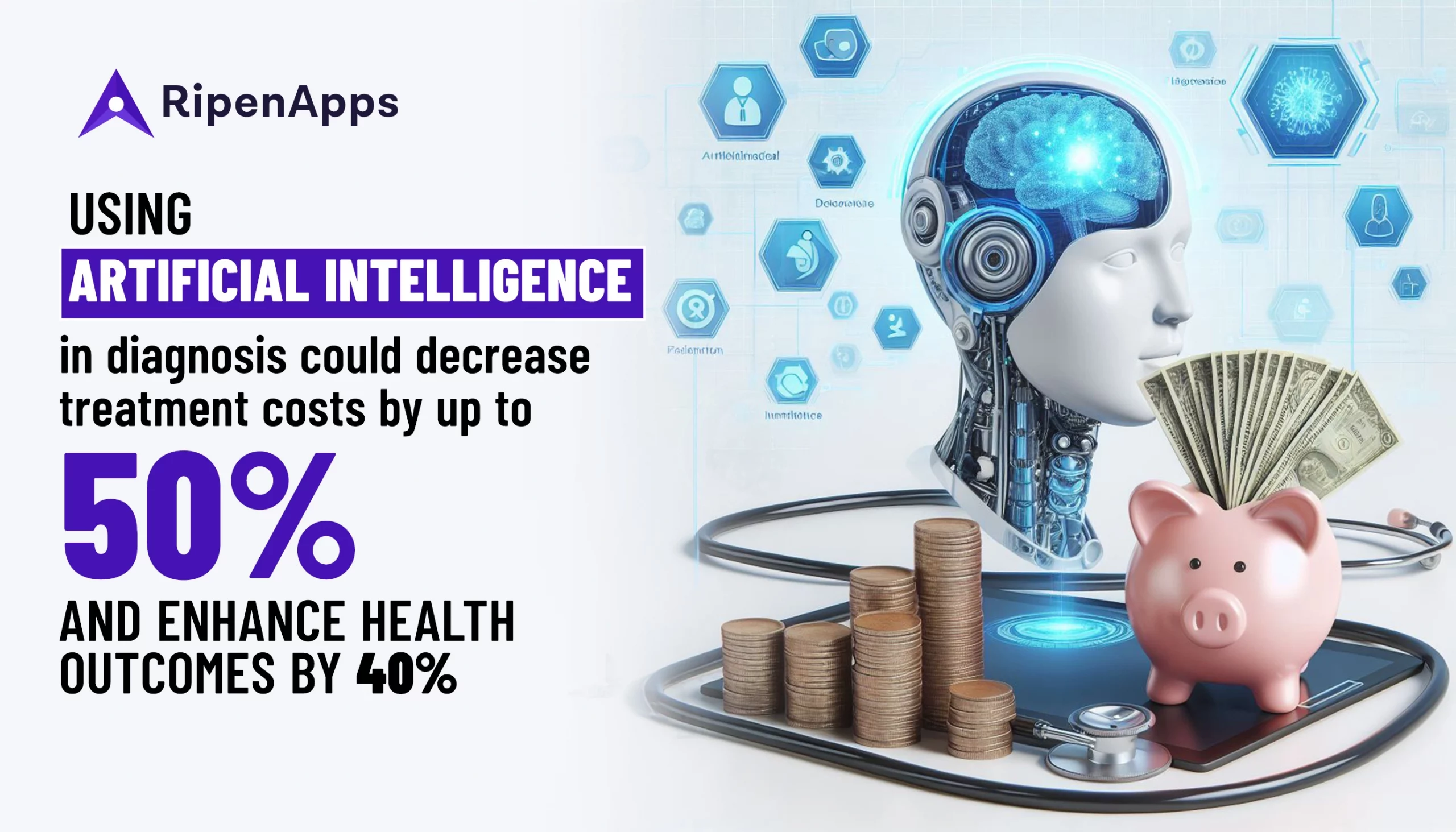
(Source: World Health Organization)
6. High Operational Cost
Running a healthcare facility is expensive, with costs for equipment, medication, and staff salaries. The current healthcare system has high operational costs. It prefers to incentivize shorter appointments and quicker patient throughput, which contradicts the time-intensive nature of patient-centered care. So, there is a high need for striking a balance between efficiency and patient-centeredness.
7. Traditional Doctor-Centric Model
Historically, the doctor has been the sole decision-maker in healthcare. The doctor-biased model leaves little room for patient input and shared decision-making. When it comes to shifting towards a patient-centered model, it requires a change in mindset from both doctors and patients, which is often neglected.
8. Lack of Technology Adoption
Many healthcare facilities still rely on paper records and fragmented IT systems. It not only makes it difficult to share patient information effectively but also hinders collaboration and patient involvement in their care. Many leading mobile app development services provider suggest that various healthcare providers still fall behind in implementing and using the latest healthcare technology that empowers patients to be active participants in their healthcare journey.
Read Also: How is Wearable Technology Shaping the Future of Healthcare Industry?
Role of AI in Patient-Centric Healthcare
As you have seen why patient-centered care is becoming an important concern for the healthcare sector today. So the question arises: what is the solution? The answer is using artificial intelligence technology in healthcare apps.
Artificial intelligence empowers healthcare applications with high-end capabilities. AI-powered healthcare apps help healthcare organizations and clinical institutions provide more patient-centered healthcare services. This is because AI in healthcare works in various roles that include-
1. Personalized Treatment Plans
AI-powered healthcare apps can generate personalized treatment plans based on individual patient data, including genetic information, medical history, and lifestyle factors. These apps tailor treatment recommendations to specific patient needs. Consequently, it improves treatment efficacy and patient outcomes.
2. Healthcare Data Management and Analysis
Artificial intelligence technologies enable healthcare apps to manage and analyze large volumes of healthcare data efficiently. By deploying Natural Language Processing (NLP) and machine learning algorithms in telemedicine and mental healthcare app development, it can extract valuable insights from electronic health records (EHRs), medical imaging, and genomic data. Hence, it can aid in clinical decision-making and research.
3. Chatbots and Virtual Health Assistants
AI-driven chatbots and virtual health assistants within healthcare apps provide personalized support and information to patients. A chatbot development company can build these AI-powered virtual agents to answer healthcare-related questions, schedule appointments, provide medication reminders, and offer guidance on healthy living. So, it helps in enhancing patient engagement and access to care.
4. Drug Discovery and Development
AI in healthcare plays a crucial role in accelerating drug discovery and development processes through healthcare apps. Top AI app development company employ Machine learning algorithms in healthcare apps to analyze molecular structures, predict drug interactions, and identify potential drug candidates. This helps in reducing the time and cost associated with bringing new drugs to market.
5. Decision Support Systems
Artificial intelligence technology empowers healthcare providers to make well-informed decisions. It allows healthcare app developers to embed data-driven decision support systems in healthcare apps to provide evidence-based recommendations to healthcare providers during clinical decision-making.
These systems synthesize vast amounts of medical literature, guidelines, and patient data to assist clinicians. Thus, it contributes to making informed decisions, reducing errors, and improving patient safety.
6. Predictive Analytics and Risk Stratification
Using AI in healthcare apps also allows healthcare professionals to analyze patient data and predict disease progression, identify at-risk populations, and stratify patients based on their likelihood of developing certain conditions.
This information enables proactive interventions and personalized preventive care strategies, which ultimately improve population health outcomes. This feature is highly implemented by a custom app development company when it comes to building AI capabilities in apps.
7. Administrative Automation
Administrative burden in healthcare is one of the major problems in the entire healthcare sector. According to reports, the administrative costs in the US healthcare system account for 15-30% of the entire spending. This is due to most healthcare systems following traditional methods that involve manual efforts and heavy paper-based work.
So, here AI can automate repetitive tasks like appointment scheduling, claims processing, and data entry. This frees up healthcare staff to focus on patient care and reduces administrative burdens.
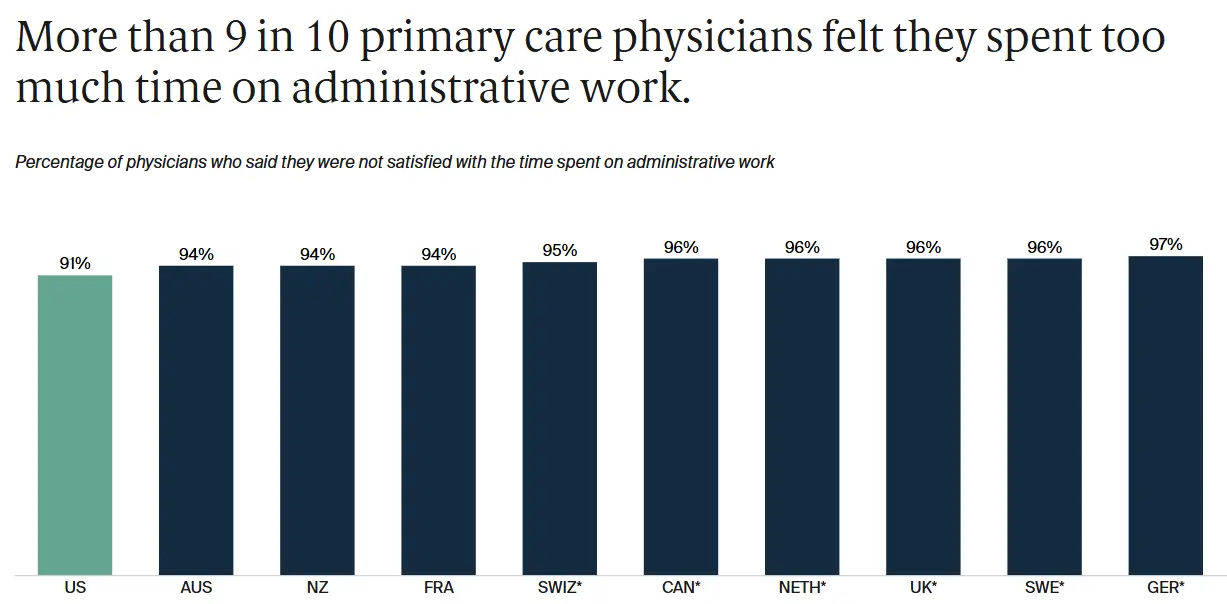
So, here AI can automate repetitive tasks like appointment scheduling, claims processing, and data entry. This frees up healthcare staff to focus on patient care and reduces administrative burdens.
How AI in Healthcare Apps Helps in Delivering Patient-Centered Healthcare?
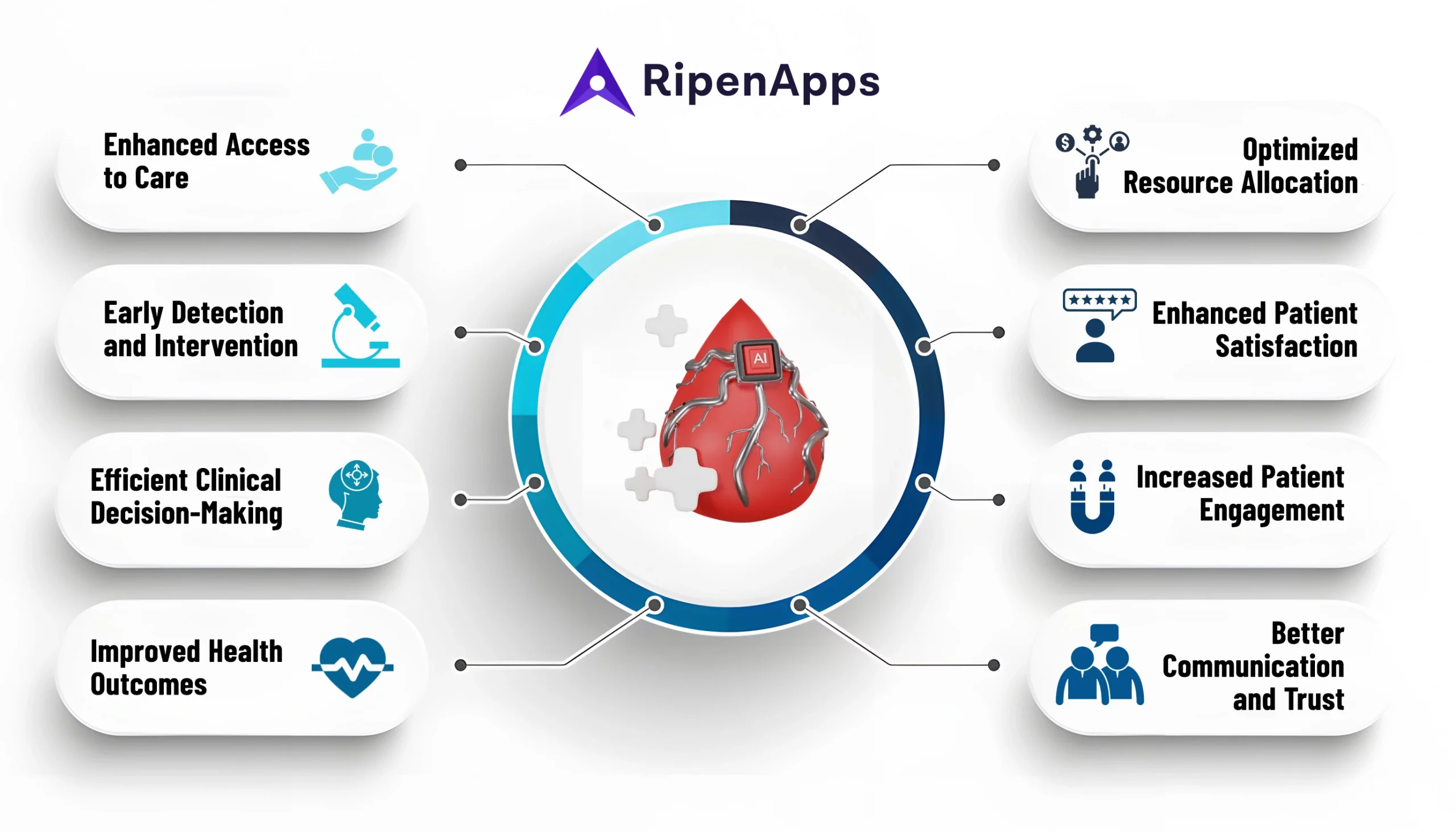
Patient-centered healthcare is essential for promoting better health outcomes. It emphasizes the importance of treating each patient as an individual with unique needs, preferences, and values. Being a healthcare startup or healthcare provider if you envision offering a more compassionate, effective, and equitable healthcare system, then adopting AI in healthcare app development services can help you make this vision successful. Here is how using AI in healthcare empowers you to deliver patient-centered healthcare.
1. Enhanced Access to Care
Healthcare apps equipped with AI-driven telemedicine and remote monitoring capabilities. They enable patients to access healthcare services conveniently from their homes or remote locations. As a result, this improved accessibility eliminates barriers such as geographical distance, transportation issues, and long wait times. It ensures that patients receive timely care when and where they need it. Thus, enhancing patient-centeredness.
2. Early Detection and Intervention
AI algorithms analyze patient data to detect subtle changes in health status. It helps you identify potential health risks, and predict adverse events before they occur. By leveraging predictive analytics and machine learning techniques, healthcare apps can alert patients and healthcare providers to early warning signs. It can facilitate proactive interventions and preventive measures to mitigate risks and improve health outcomes.
3. Efficient Clinical Decision-Making
AI-driven clinical decision support systems assist healthcare providers in making informed and evidence-based decisions at the point of care. By analyzing patient data, medical literature, and best practices, AI-powered apps can offer recommendations on diagnostic tests, treatment options, and medication dosages. Thus, it can assist healthcare providers deliver personalized and effective care while also minimizing errors and variability in medical practice.
4. Improved Health Outcomes
AI-powered healthcare apps focus on the individual’s unique needs, preferences, and values. When you integrate AI in healthcare mobile app development, it empowers the apps with intelligent decision-making processes.
Your healthcare apps can offer tailored or personalized treatment plans to their specific circumstances. Hence, using artificial intelligence in healthcare applications can enable healthcare providers not only to enhance treatment adherence but also improve health outcomes.
Using artificial intelligence in diagnosis could decrease treatment costs by up to 50% and enhance health outcomes by 40% – Source: Harvard’s School of Public Health.
Read Also : A Business Guide To Healthcare App Development
5. Optimized Resource Allocation
AI-powered healthcare apps optimize resource utilization by streamlining administrative tasks and automating routine processes. It prioritizes patient needs based on clinical urgency and severity.
Using AI algorithms, healthcare apps reduce inefficiencies and redundancies in care delivery. This allows healthcare organizations to allocate resources more effectively, improve operational efficiency, and enhance the overall quality of care for patients.
6. Enhanced Patient Satisfaction
Patients who feel listened to, respected, and involved in their care are more likely to be satisfied with their healthcare experiences. Today, there is a high need for Patient-centered care that emphasizes communication, empathy, and partnership between patients and healthcare providers. For this, artificial intelligence in healthcare supports healthcare providers to achieve higher levels of satisfaction.
7. Increased Patient Engagement
When patients are active participants in their healthcare journey, they are more likely to engage in healthy behaviors. If your healthcare mobile apps engage patients intuitively, then they can encourage patients to adhere to treatment plans and take ownership of their health. This patient-centered care fosters collaboration between patients and providers. And thus empowers individuals to make informed decisions about their health.
8. Better Communication and Trust
Patient-centered care promotes openness and honest communication between patients and healthcare providers. Establishing trust and transparent communication is essential for effective healthcare delivery.
Here, leveraging AI in healthcare app development helps you build a better patient-centric support system. With AI-powered healthcare apps, you can easily encourage patients to share important information about their health concerns, lifestyle factors, and treatment preferences.
Real-life examples of AI in Healthcare App Development
The role of AI in healthcare app development is increasing significantly as the demand for patient-centered care is becoming a top priority. There are many real-life examples and healthcare app ideas in the market that have implemented AI in healthcare apps and achieved impressive outcomes. Here are those examples that could inspire you to leverage AI for delivering better patient-centered care.
Ada Health
Ada is a popular AI-based healthcare app. It helps users assess their symptoms and receive personalized health recommendations. The app has been praised for its intelligent use of AI in medicine, which comes with better accuracy and a user-friendly interface. And thus making it a valuable tool for self-assessment and triage.
Suki
Suki is an AI-powered voice-enabled digital assistant. This healthcare app is designed to streamline clinical documentation and administrative tasks for healthcare providers. By reducing documentation burdens and improving efficiency, Suki enables clinicians to focus more on patient care and less on paperwork.
AiCure
This is an AI-powered healthcare application. It leverages computer vision and AI to monitor patients’ medication adherence through their smartphone cameras. AiCure detects if a patient takes their medication as prescribed and alerts healthcare teams if there are missed doses. This empowers patients to manage their medications effectively and helps researchers gather more accurate data in clinical trials.
Tempus
Tempus is also an AI-driven healthcare application that is focused on advancing precision medicine and cancer care. It leverages machine learning algorithms to analyze large-scale datasets and extract actionable insights. Tempus empowers clinicians to deliver more effective and personalized care to cancer patients.
Wrapping Up
To conclude, patient-centered healthcare is the need of the hour. The healthcare sector looks for effective and powerful solutions that help it deliver more patient-focused care. Here, AI-powered healthcare apps stand out as the best solution for those who want to enhance their healthcare services through patient-centered care.
However, AI is an advanced technology, so leveraging AI in healthcare applications requires proven expertise. Therefore, it is advisable to find a reliable healthcare app development company that can assist you in building AI-powered patient-centered apps.
FAQs
1. What is AI in healthcare?
AI in healthcare is the use of machine learning algorithms, natural language processing, and data analytics to simulate human intelligence in medical tasks. It helps in diagnosis, treatment recommendations, predictive analytics, patient monitoring, and operational efficiency, making healthcare smarter and more proactive.
2. How does Artificial Intelligence benefit healthcare app development?
Artificial Intelligence streamlines healthcare app development by enabling real-time decision-making, automating diagnostics, personalizing treatment plans, and improving patient engagement. When paired with expert mobile application development services, it results in intelligent apps that deliver better care outcomes and operational scalability.
3. What are some real-world examples of AI applications in healthcare?
AI is widely used across healthcare today. For instance, apps like Babylon use AI for virtual health consultations, SkinVision helps detect skin cancer risk using image recognition, and Aidoc supports radiologists with AI-assisted medical imaging. These examples show how AI can elevate both accessibility and accuracy in care delivery.
4. How do AI-powered healthcare apps work?
AI-powered healthcare apps collect and analyze patient data from various sources, like symptoms, wearable devices, or medical records, and use algorithms to provide insights, alerts, or recommendations. However, a thoughtful interface built by a skilled UI UX design agency ensures these apps are intuitive for patients while functionally robust for healthcare providers.
5. How much does it cost to develop an AI healthcare app?
The cost to develop an AI healthcare app can range from $50,000 to $200,000+, depending on the app’s complexity, AI capabilities, data integrations, and compliance needs. Factors like development timeline, feature set, and whether you partner with a specialized agency also affect the final budget.


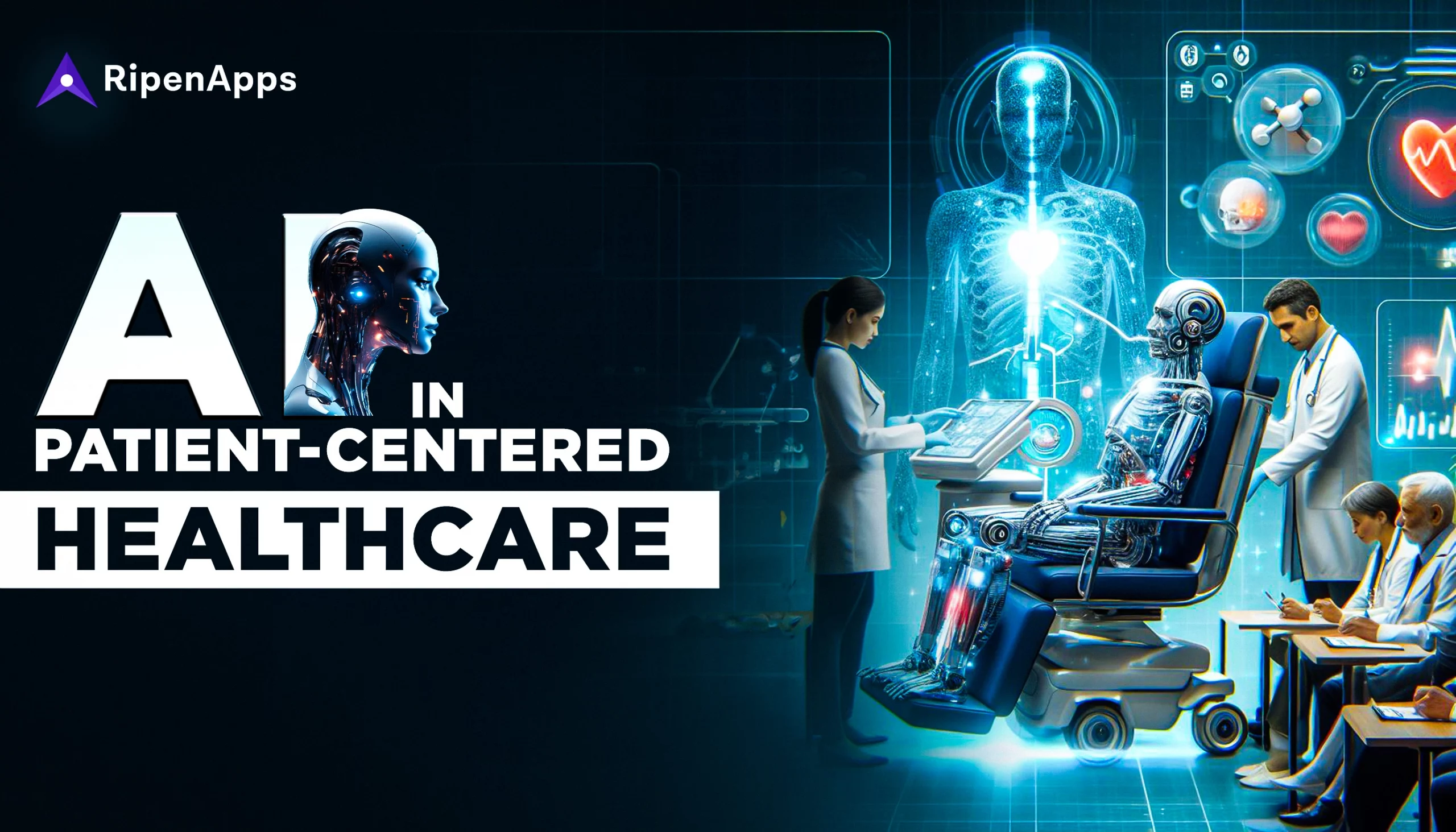





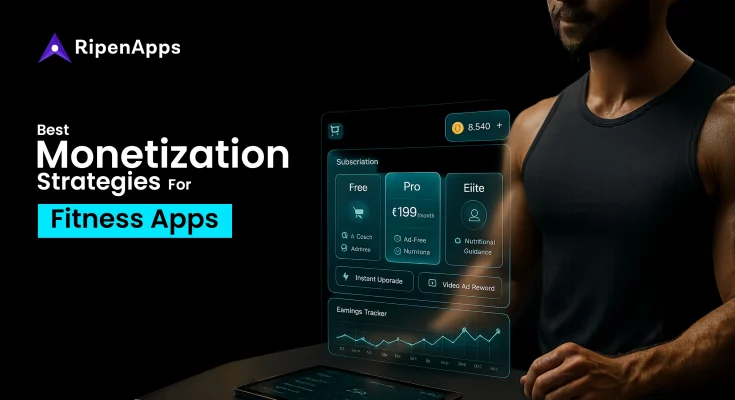
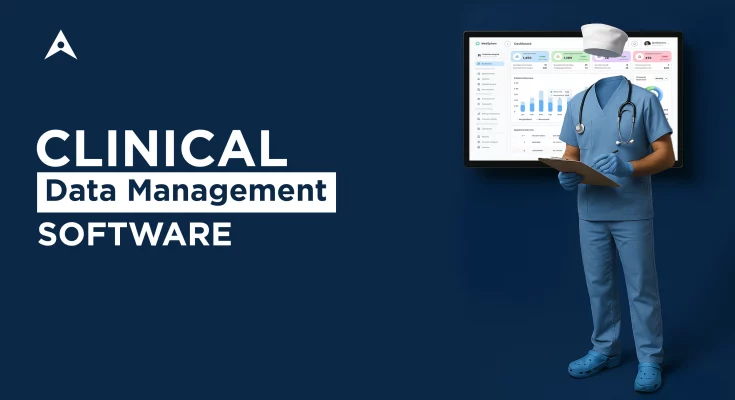

 India
India USA
USA Australia
Australia Canada
Canada UK
UK UAE
UAE
